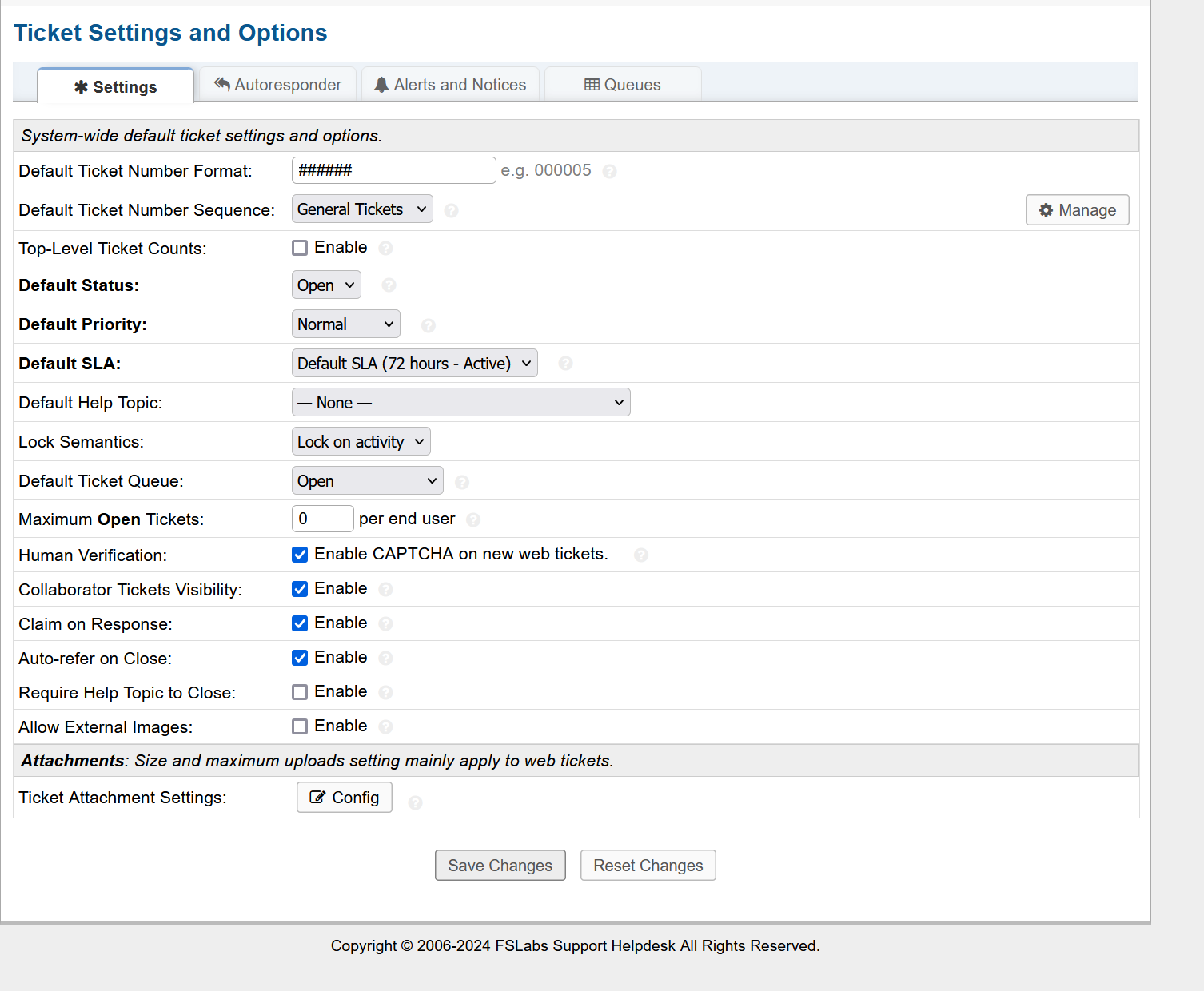What's very confusing to me is why, even though I've gone into Ticket Settings and Options and selected a SERIAL numbering of default ticket number sequence, it still picks random numbers when using the system cron-generated email sweep. You can see above, if it's a result of any of our agents' actions, the numbering is in order (000001, 000002, etc). where as if it's because of the cron, it goes at random.
Here are the settings:
